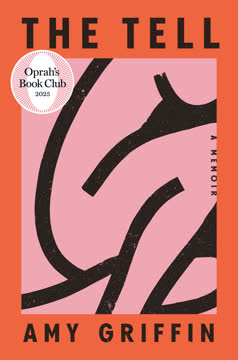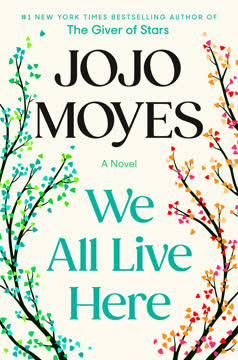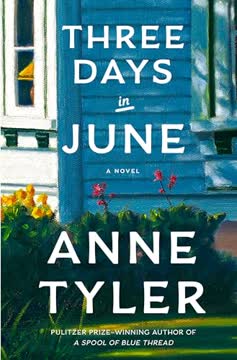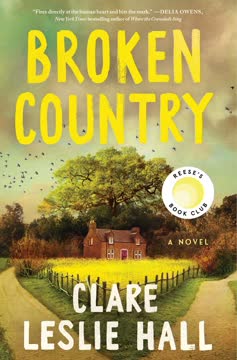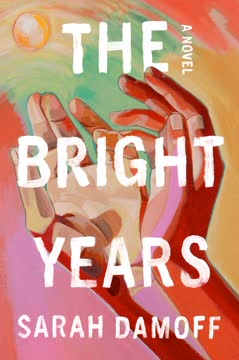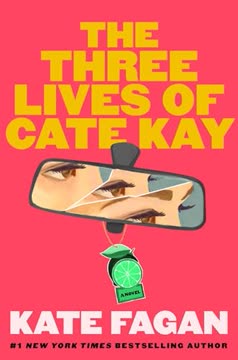Key Takeaways
1. A Life Built on Running and the Pursuit of Perfection
I ran because I was afraid of what I would feel if I sat still.
Early life facade. Growing up in Amarillo, Texas, the author cultivated an image of the perfect daughter, athlete, and leader, mirroring the ordered world of her family's convenience stores. This external perfection was a shield, a way to earn approval and feel safe in a culture that valued appearance and achievement. Running became her primary coping mechanism, a constant motion to outrun internal discomfort.
Achievement as validation. Success in sports and academics was a path to her father's pride and community recognition. This reinforced the belief that her worth was tied to accomplishments, leading to a relentless drive for exceptionalism. The pressure to be the "real leader" and the "perfect" daughter became a heavy burden, replacing childhood spontaneity with a need for control.
Loss of freedom. The carefree abandon of childhood, like doing cartwheels or riding a banana-seat bike, was gradually supplanted by teenage neurosis and a need for control. This shift wasn't understood at the time, only felt as a loss of innocence. The author learned to prioritize others' comfort and suppress her own needs, becoming a people-pleaser conditioned to look good and achieve, even if it meant sacrificing her true self.
2. The Body Remembers: Physical Manifestations of Unseen Trauma
It was like my body knew something that I didn’t.
Physical toll of repression. Despite a seemingly perfect life, the author experienced chronic physical ailments, including back and hip surgeries, sinus infections, and unexplained panic attacks. These physical issues were the body's way of signaling unresolved trauma, a "tell" that something was deeply wrong beneath the surface of her high-functioning life.
Body's instinctual reactions. The body reacted viscerally to triggers, even seemingly innocuous ones like a dentist pressing on her shoulder or her husband playfully using a yoga strap. These moments triggered fight-or-flight responses, revealing a deep-seated fear and need to escape, long before the conscious mind understood the source. The body held the memory, even when the mind did not.
Running as avoidance. The relentless need for physical activity, culminating in training for a triathlon, was an attempt to outrun internal feelings. Even after achieving significant athletic feats, the expected euphoria was absent, replaced by emptiness. This highlighted that external accomplishments could not fill the void or silence the body's persistent messages.
3. A Catalyst for Truth: Psychedelic Therapy Unlocks Memory
It’s not rewinding... It’s rebecoming. You have always been your essential self. You just have to remember.
Seeking a breakthrough. Feeling stuck and disconnected despite her successful life, the author was resistant to traditional therapy but open to exploring psychedelic-assisted therapy after witnessing its transformative effect on her husband. His newfound openness about his own past demonstrated the potential for healing and self-discovery.
MDMA as a facilitator. The therapeutic use of pure MDMA, guided by a facilitator, created a state of safety and introspection. It calmed the fear response (amygdala) and fostered self-compassion, allowing the author to access memories that had been blocked by denial and shame. The facilitator's role was to witness and support, not to guide or interpret the experience.
Accessing deep knowing. The session was described as meeting one's most compassionate self and encountering deepest knowing. It wasn't a hallucination but a vivid, real-time reliving of past events, seen from a new perspective. This experience provided undeniable certainty that the memories were real, bypassing the conscious mind's defenses and allowing the truth to surface.
4. Unearthing the Unthinkable: Recalling Repressed Abuse
“Oh,” I said simply, realizing, “I did nothing wrong.”
Sudden, vivid recall. During the MDMA session, repressed memories of childhood sexual abuse by a middle school teacher, Mr. Mason, surfaced with shocking clarity. The memories were sensory and visceral, placing the adult author as a witness to her younger self's experience in specific locations like the school bathroom, classroom, and locker room.
The mechanism of grooming. The memories revealed how the abuser exploited the author's core desire for validation and leadership. Mr. Mason's praise and attention, particularly after she lost the student council election, built trust and made her feel special, creating a vulnerability he then exploited. This explained why she spent time alone at school and felt a strange charge around him.
Shattering denial. The realization that the abuse was real and that she was
[ERROR: Incomplete response]
Last updated:
FAQ
What is The Tell: A Memoir by Amy Griffin about?
- Personal journey of trauma: The memoir recounts Amy Griffin’s experience of uncovering and confronting repressed memories of childhood sexual abuse by her teacher, Mr. Mason.
- Healing and recovery: It details her path toward healing, including therapy and psychedelic-assisted sessions, and the emotional, legal, and familial challenges she faces.
- Broader societal context: The book also explores the silence around abuse, societal expectations, and the role of family and community in shaping identity and responses to trauma.
- Investigation and justice: Griffin’s pursuit of justice, including legal battles and investigations, is a central thread, highlighting the complexities survivors face.
Why should I read The Tell: A Memoir by Amy Griffin?
- Deep insight into trauma: The memoir offers a raw, honest look at the complexities of recovering suppressed memories and the long-term effects of abuse.
- Empowerment and hope: Griffin’s story models courage in breaking silence, showing how telling one’s story can be a path to healing and reclaiming power.
- Legal and social awareness: The book sheds light on the challenges survivors face in seeking justice, especially in conservative, small-town environments with outdated laws.
- Universal themes: Beyond abuse, it explores family, identity, trust, and authenticity, making it relatable to a wide audience.
What are the key takeaways from The Tell: A Memoir by Amy Griffin?
- Telling is healing: Griffin emphasizes that sharing one’s story is crucial to overcoming shame and trauma, and that “the telling is the medicine.”
- Healing is multifaceted: Recovery involves both internal work—through therapy, self-compassion, and boundary-setting—and external work, such as seeking justice and support.
- Justice is complex: Legal systems may fail survivors, but personal empowerment and support networks can still lead to healing.
- Family and trust: Rebuilding trust and openness with family is vital, even when it involves painful conversations and confronting shared trauma.
How does Amy Griffin describe her therapeutic process, including psychedelic-assisted therapy, in The Tell: A Memoir?
- MDMA-assisted therapy: Griffin undergoes psychedelic-assisted therapy with Olivia, which helps unlock repressed memories and allows her to face trauma with compassion.
- Therapy as a safe space: The sessions create a nonjudgmental environment where trauma can surface with less fear and shame, facilitating deep healing.
- Symbolic tools and self-compassion: Her therapist Lauren uses animal cards and other tools to help Griffin process her journey, encouraging self-kindness and acceptance.
- Nonlinear progress: Griffin experiences setbacks, anger, and vulnerability, learning that healing is not a straight path but requires patience and self-trust.
What role does the legal system play in Amy Griffin’s story in The Tell: A Memoir?
- Statute of limitations barrier: Griffin learns that the statute of limitations in Texas prevents criminal prosecution for her case, despite changes in the law.
- Local legal challenges: Navigating the small-town legal landscape is frustrating, with unhelpful lawyers and community reluctance to confront abuse.
- Investigation efforts: Griffin and her legal team seek corroborating witnesses, but many are unwilling or unable to come forward, highlighting community silence.
- Civil case risks: Pursuing a civil case is considered but feared due to the possibility of countersuits and prolonged, uncertain legal battles.
How does Amy Griffin address family dynamics and disclosure in The Tell: A Memoir?
- Telling her sister first: Griffin chooses to tell her sister Lizzie before their parents, prioritizing her sister’s safety and emotional well-being.
- Parents’ reactions: Her parents are shocked and devastated but ultimately supportive, vowing to be present for her moving forward.
- Children’s awareness: Griffin prepares to tell her children about her abuse in an age-appropriate, honest way, responding to their intuition and questions.
- Family healing: The memoir explores the complexity of family healing, including anger, guilt, and the gradual rebuilding of trust and understanding.
What is the significance of running in The Tell: A Memoir by Amy Griffin?
- Running as escape: Running symbolizes Griffin’s attempt to outrun her pain and maintain control, serving as both a physical and emotional coping mechanism.
- Physical toll: Her body’s injuries and surgeries reflect the cost of relentless running, mirroring her internal struggle and avoidance.
- Metaphor for healing: Ultimately, Griffin realizes she has been “running toward” her trauma, marking a turning point in her journey toward truth and healing.
- Transformation of meaning: Running evolves from a means of avoidance to a metaphor for confronting and integrating her pain.
How does Amy Griffin explore the theme of perfection and authenticity in The Tell: A Memoir?
- Perfection as a mask: Griffin describes striving for perfection to hide her trauma, being “nice but not real,” and using achievement as a survival mechanism.
- Letting go of control: Through therapy, she learns to release the need for perfection and embrace vulnerability as a strength.
- Modeling authenticity: Griffin wants her daughters to see her as real and imperfect, teaching them that worth is not tied to achievement.
- Redefining perfect: Her father’s words, “You were always perfect to me,” help her understand that true love is unconditional and not based on performance.
What is the significance of the “dress” and Claudia in The Tell: A Memoir by Amy Griffin?
- Symbol of kindness: The memory of lending a dress to Claudia represents Griffin’s innate kindness and essential self, which abuse could not take away.
- Claudia’s memory gap: Claudia does not remember much about middle school or the abuse but recalls Griffin’s kindness, highlighting the impact of small acts.
- Unresolved connection: The recurring memory of the dress becomes a touchstone for Griffin’s healing and search for validation.
- Postcard mystery: An unsigned postcard referencing the dress adds complexity to Griffin’s journey, symbolizing the ongoing search for truth and connection.
How does Amy Griffin explain memory and trauma in The Tell: A Memoir?
- Memory encoding and recall: Griffin learns that traumatic memories can be strongly stored but not always consciously recalled, surfacing when conditions are safe.
- Body’s role in trauma: Her body “never forgot” the trauma, manifesting symptoms like hypervigilance, anxiety, and physical pain.
- Repression as protection: The book explains that repression is not a choice but a protective mechanism, with memories resurfacing when the mind is ready.
- Triggers and recovery: Events like her children reaching the age she was abused can trigger the return of memories, illustrating the complexity of trauma recovery.
What is the role of small-town culture and community in The Tell: A Memoir by Amy Griffin?
- Small-town silence: The culture of Amarillo, Texas, contributed to secrecy, denial, and the protection of abusers, making it difficult for survivors to speak out.
- Community complicity: Adults, including teachers and coaches, were often unaware or unwilling to acknowledge abuse, perpetuating silence.
- Challenges of returning: Griffin feels both connected and alienated when returning to her hometown, confronting the physical spaces where abuse occurred.
- Cultural critique: The memoir critiques the patriarchal and conservative environment that allowed abuse to persist and hindered justice for survivors.
What are the best quotes from The Tell: A Memoir by Amy Griffin and what do they mean?
- “The telling is the medicine—not the cause of shame but the thing that heals it.” This encapsulates the memoir’s core message that speaking one’s truth is vital for healing from trauma.
- “Denial is a glass case that must be shattered before you realize you were trapped inside it in the first place.” This metaphor highlights how repression can imprison survivors unknowingly, and breaking through denial is essential for recovery.
- “If it’s hysterical, it’s historical.” This phrase reminds Griffin that intense emotional reactions often stem from unresolved past trauma, helping her contextualize her feelings.
- “You were always perfect to me.” Her father’s words redefine perfection as unconditional love, contrasting Griffin’s earlier belief that she had to earn worthiness.
Review Summary
The Tell receives mixed reviews, with ratings ranging from 1 to 5 stars. Many readers praise Griffin's bravery in sharing her story of childhood sexual abuse and subsequent healing journey. The book is described as well-written, compelling, and important. However, some critics find the author's tone self-absorbed and question the reliability of recovered memories through MDMA therapy. Several reviewers express discomfort with the lack of corroboration and closure in the narrative. Despite the polarizing reactions, most agree the memoir tackles significant themes surrounding trauma, recovery, and societal attitudes toward abuse survivors.
Similar Books
Download PDF
Download EPUB
.epub digital book format is ideal for reading ebooks on phones, tablets, and e-readers.
